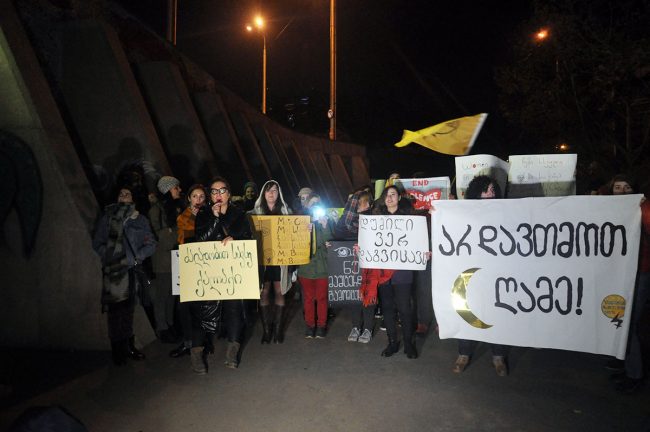

 Dozens of women’s rights activists gathered in Tbilisi on 10 December to rally against sexual violence and harassment.
Dozens of women’s rights activists gathered in Tbilisi on 10 December to rally against sexual violence and harassment.
Georgian group the Independent Group of Feminists (IGF) organised the event, urging women to ‘reclaim the night’.
The demonstration started at the pedestrian underpasses under Tbilisi’s Heroes’ Square, which have been described by many as unsafe for women.
[Read on OC Media: [Voice from Georgia] Tbilisi in denial — the seductive victims of sexual assault]
The underpasses were recently redecorated after new Mayor of Tbilisi Kakha Kaladze asked a number of street artists to decorate them. They have also been equipped with lighting.
However, the IGF argue that underpasses should be renovated not only to clean them up, but as an informed part of a policy aimed at preventing violence against women.
‘We will not give up the night’, posters at the demonstration read.
One of the protesters’ demands was to urgently equip all underground crossings with lighting, and to make underpasses, and public spaces in general, safer for women.
‘Women need gender-sensitive public spaces in order to be able to move freely in daytime and at night’, their statement read.
Earlier in October, umbrella group the Georgian Women’s Movement presented a petition to Parliament calling for legislation against sexual harassment in public and at workplaces.
On 11 December, the newly-appointed Public Defender, Nino Lomjaria, issued a statement, claiming ‘legislative amendments are necessary to define sexual harassment and come up with procedures to address the issue’.
There are currently no penalties under the law for sexual harassment in Georgia, and it is not defined as discrimination.









